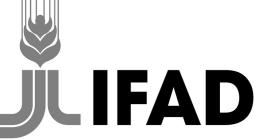COP29: Deploying innovative financing instruments for resilient food systems
Investing in restoration of degraded lands and sustainable land management, pays significant human and environmental dividends. Environment-friendly and water-efficient agriculture for smallholders is key to reducing poverty, boosting smallholder adaptation to climate change, as well as rehabilitating degraded lands. Transforming food systems so they survive and thrive under climate change demands USD 1.3 trillion in investment every year until 2050. A total investment in nature of USD 8.1 trillion is required between now and 2050 – while annual investment should reach USD 536 billion annually by 2050 – in order to successfully tackle the interlinked climate, biodiversity, and land degradation crises. Half of the world’s GDP is dependent on nature, and every dollar invested in restoration creates up to USD 30 dollars in economic benefits. Official Development Assistance is increasingly constrained by tight public budgets and financial innovation is therefore required. Global stakeholder ambition to scale up climate finance is high. Promotion of green finance across financial actors (such as banks, local and national institutions, insurers and regulators) and development of innovative instruments to effectively mobilize private-sector finance effectively are instrumental in strengthening climate resilience and mitigation. Entities must optimize their borrowing cost over the medium- to long-term to pass on benefit to those most requiring financial access. This session will discuss the opportunities and challenges of developing and deploying innovative financial instruments in an effort to tackle food security issues amidst climate change.
